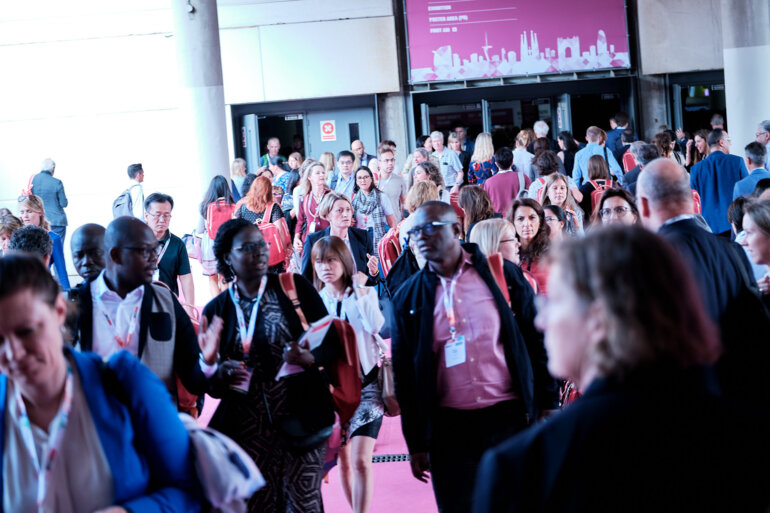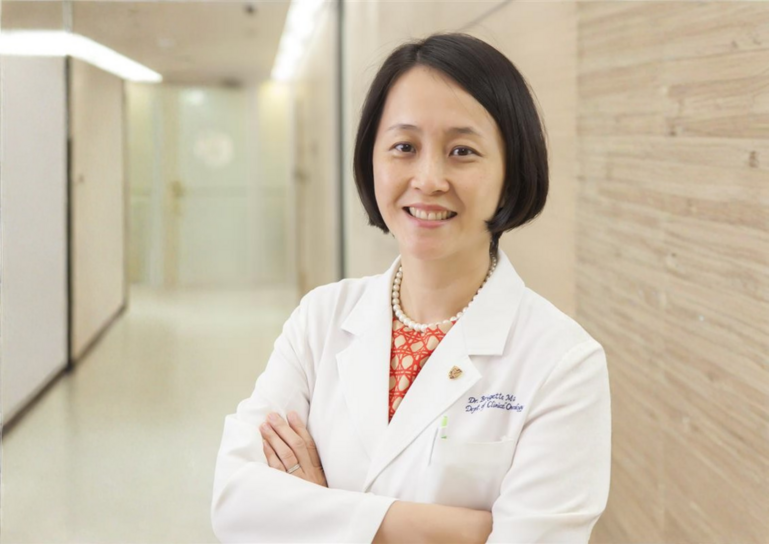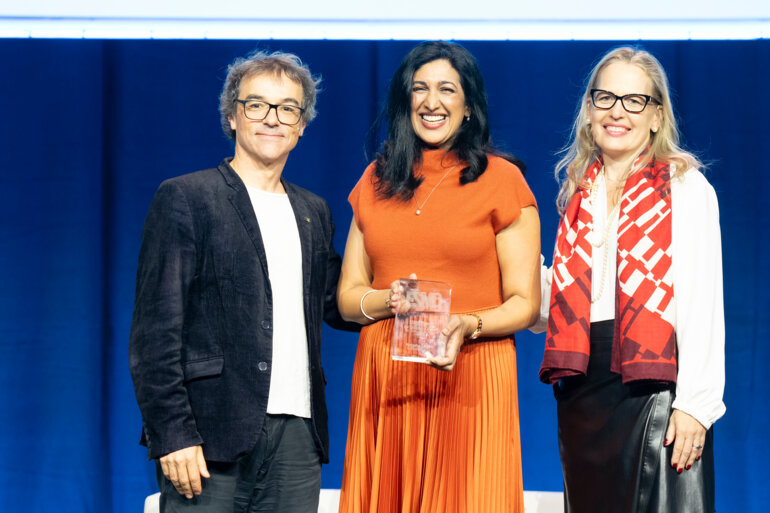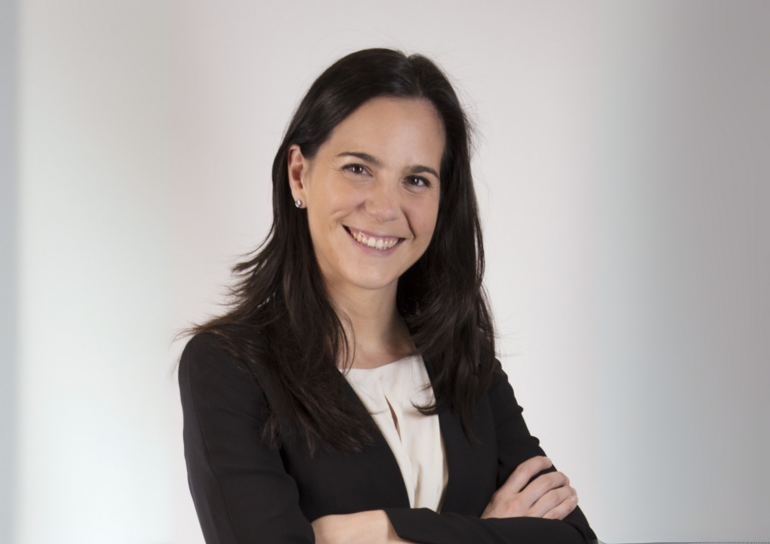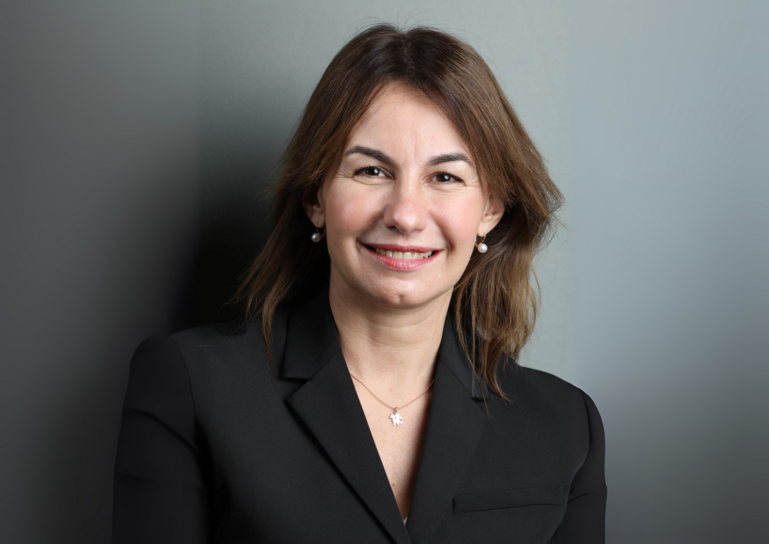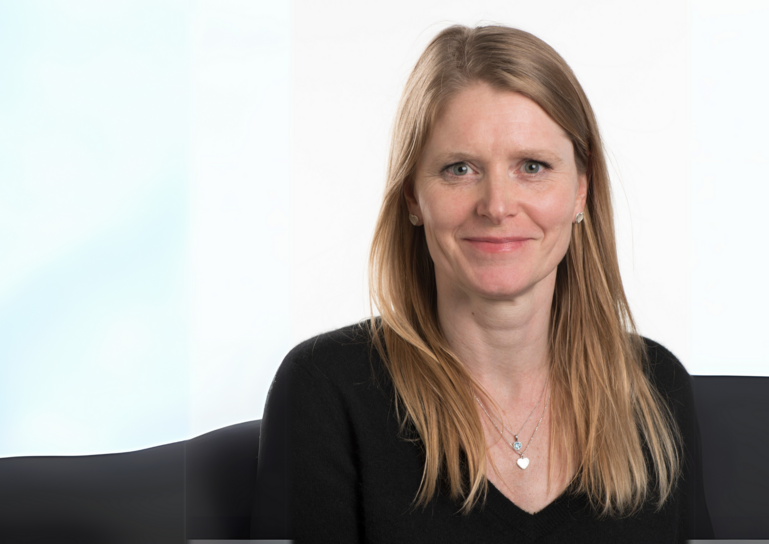Teresa Del Giudice is the 30,000th ESMO Member. In this interview she explains what motivated her to join the community.
Having more than tripled in size in the last decade, the ESMO membership has steadily grown more diverse, under the umbrella of a Society that cares for its members by fostering inclusion across disciplines and geographical borders, and by catering to their diverse needs.
ESMO member number 30,000 is Dr. Teresa Del Giudice, a young Italian medical oncologist working at the Azienda Ospedaliera Universitaria Dulbecco in Catanzaro, Italy, where she spends most of her day taking care of patients with cancer. This does not prevent her from nurturing a vibrant interest in clinical research, with a focus on melanoma and thoracic malignancies, an activity that she hopes to be able to dedicate more time to develop it further.
What motivated you to become an ESMO Member, after years of being an oncology professional?
I attended my first ESMO Congress last year in Paris. It has been a very exciting opportunity for me not only to learn about the latest advancements in cancer research, but also to network and exchange experiences with peers from all over the world.
It was also an opportunity for me to learn about the many useful resources that ESMO develops for its members. That’s why I decided to join the ESMO community. As a new member, I am still exploring all the available resources; currently the ones I am mostly interested in are the ESMO Handbooks, the material dedicated to liquid biopsy, and the ESMO journals, which allow me to deepen my knowledge about specific topics.
Which elements of your job are most challenging and how do you think ESMO could support you?
Treating patients is a constant challenge: every patient is different, and the complexity is not only given by the nature of the disease itself, but also by the differences each case presents, also in terms of relationship with the person you have in front of you.
It therefore becomes really important to have the opportunity to share experiences about patient management and aspects like side-effects, to make sure we offer the best available care to each patient.
A community like ESMO, and more specifically the ESMO Young Oncologists, can substantially facilitate this type of exchange and the dissemination of the latest scientific advancements globally, by granting access to dedicated content that is both useful for the daily management of patients and one’s professional growth.
What would you expect from ESMO as the community continues to grow?
One of my professional goals is to invest more time in clinical research. I think that to make progress in the treatment of cancer, oncologists should have the possibility to learn the basics of research to allow them to carry it out in a more capillary way.
In this context, the ESMO Fellowship programme represents a great opportunity: however, it is not something suitable for everybody. I would love to see ESMO further develop easily approachable tools, for example handbooks on the methodology of research, even practical, hands-on courses, that would allow oncologists – young ones, in particular - to have a common basic knowledge in clinical research that they can apply and further develop locally, thus contributing to advance research.
Join the ESMO Community
ESMO Membership connects oncology professionals from 168 countries to a large global community. According to ESMO Director of Membership Dr. Evandro de Azambuja
“The new remarkable milestone of 30,000 members is a signal for ESMO that its work is very much needed, and it represents a motivation to continue catering to the needs of oncology professionals,” he says. "For a professional society such as ESMO, a diverse membership represents a strength that must be nurtured,” he states. “I believe one of ESMO’s important tasks in the years to come is to continue to attract enough talented young individuals to work in the field to match the rising incidence of cancer and secure access to new therapies. We need to ensure that the achievements of the oncology community today can be sustained in the future and facilitate the delivery of optimal cancer care to all patients irrespective of their geographic location.”


